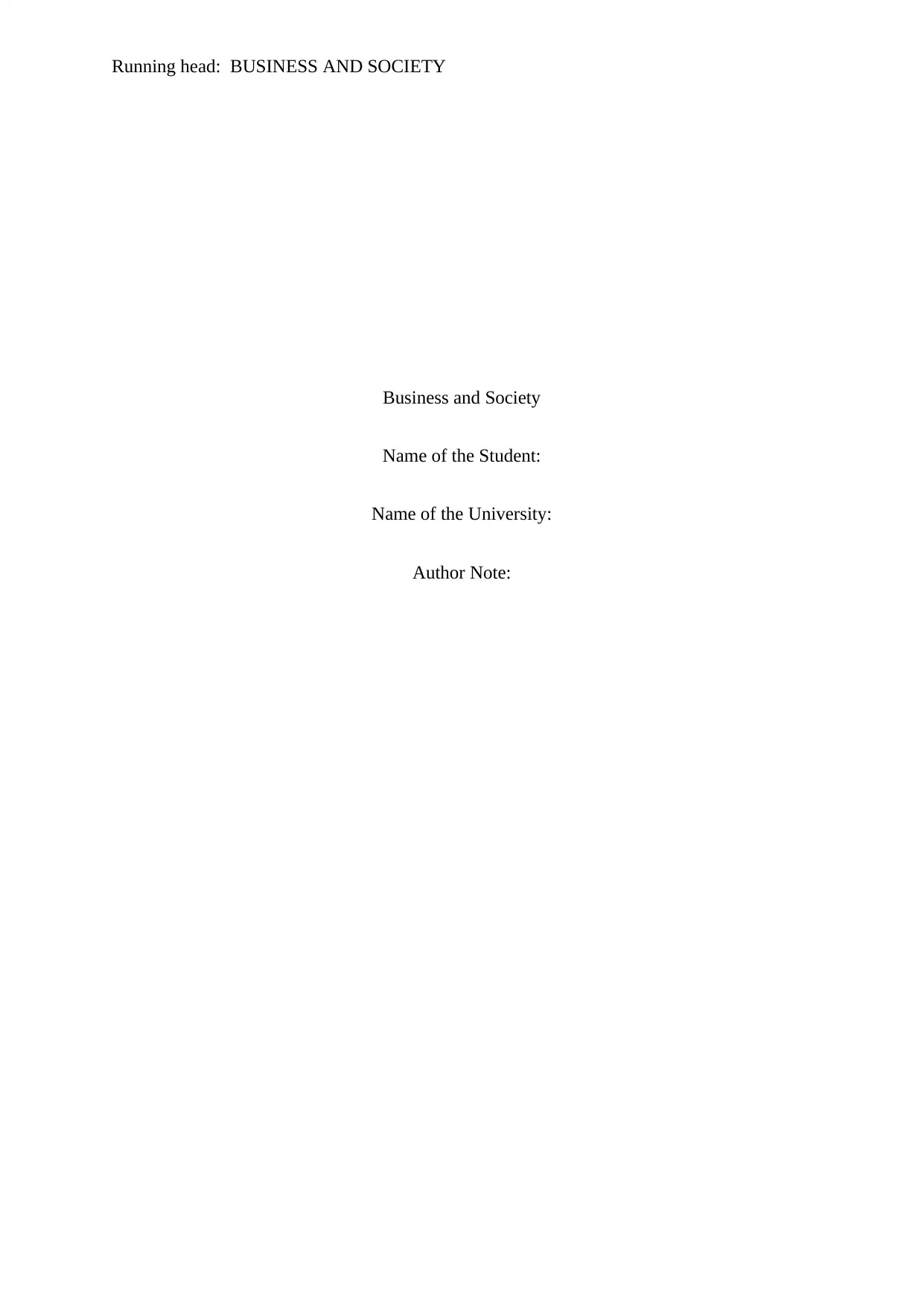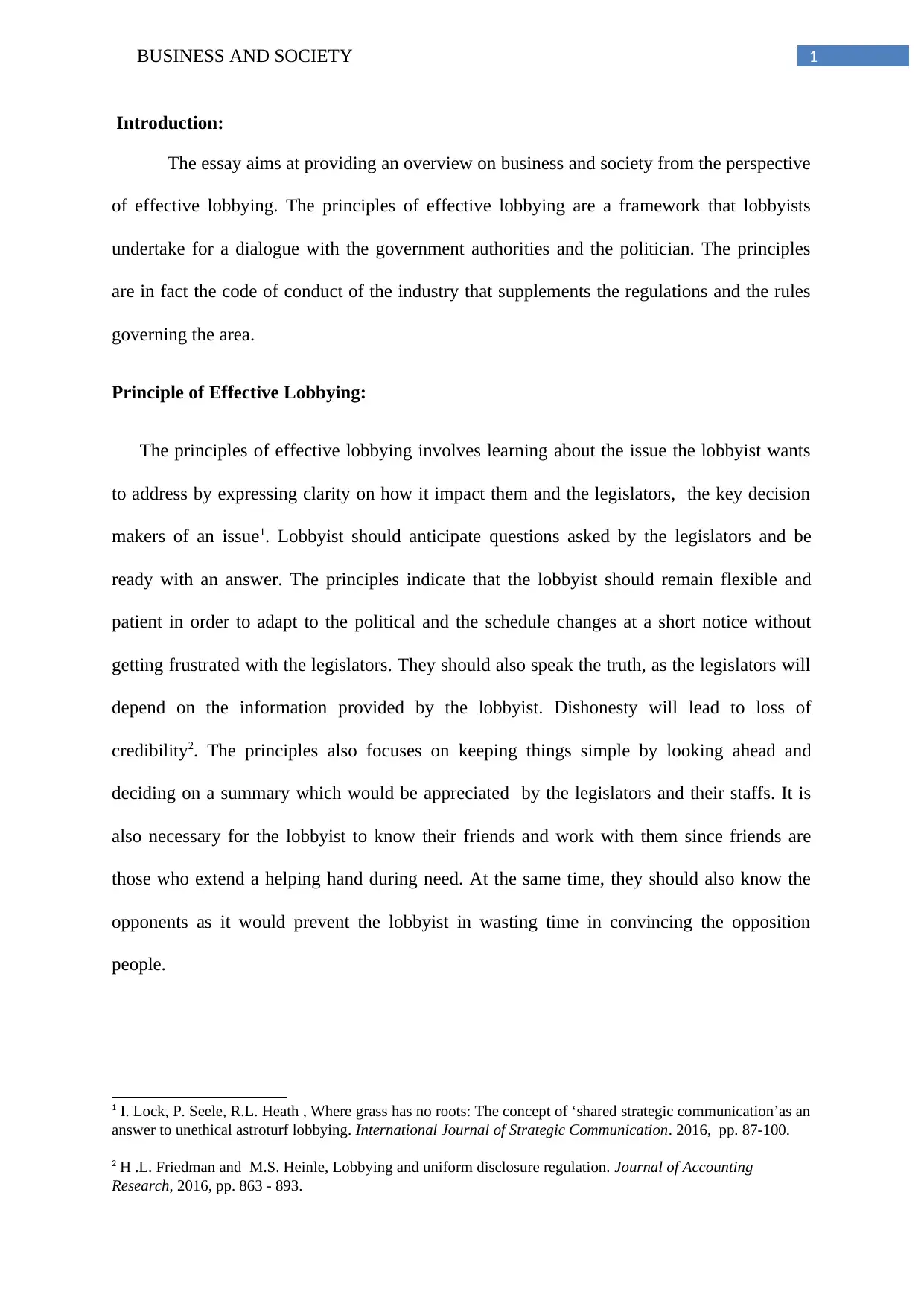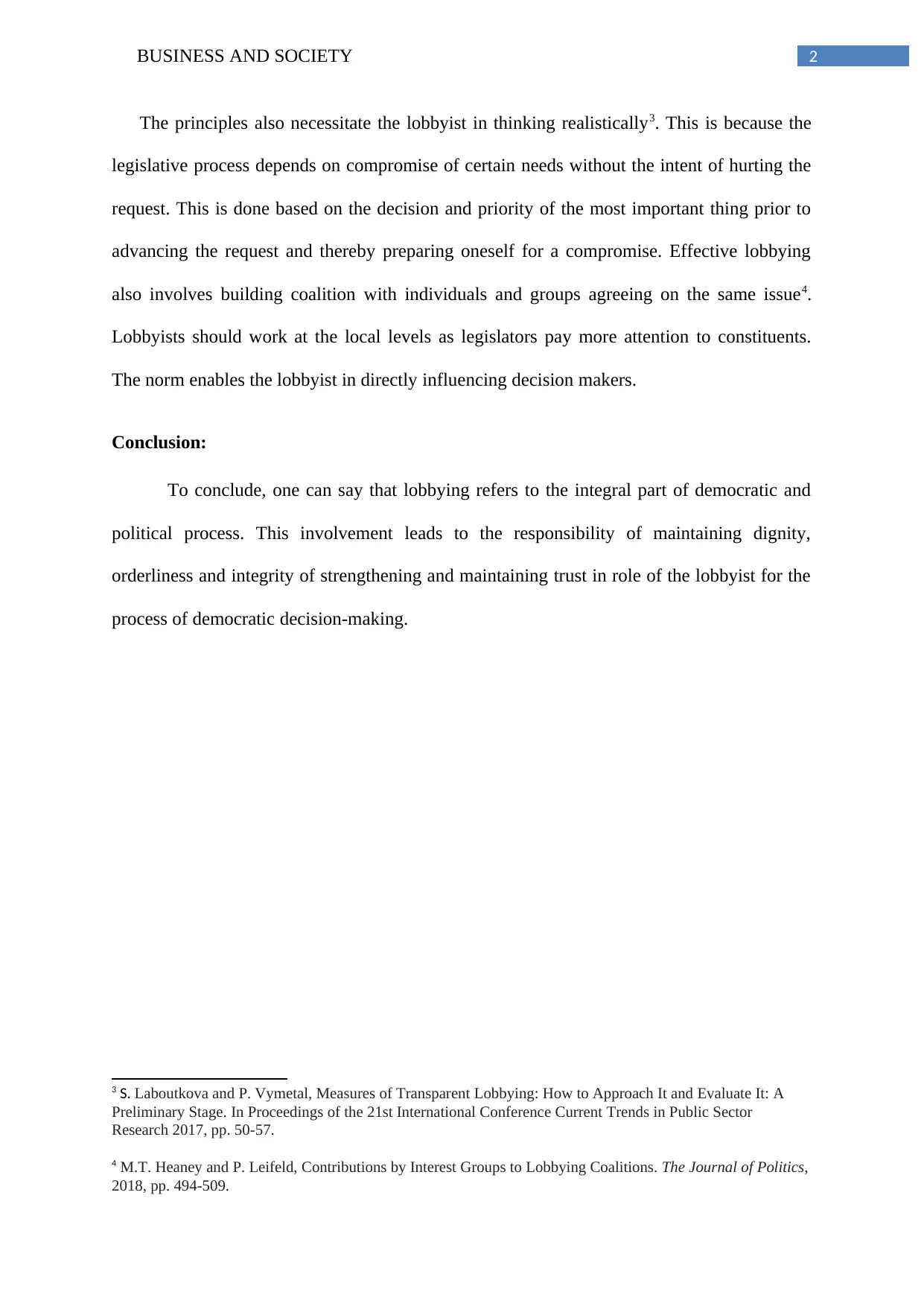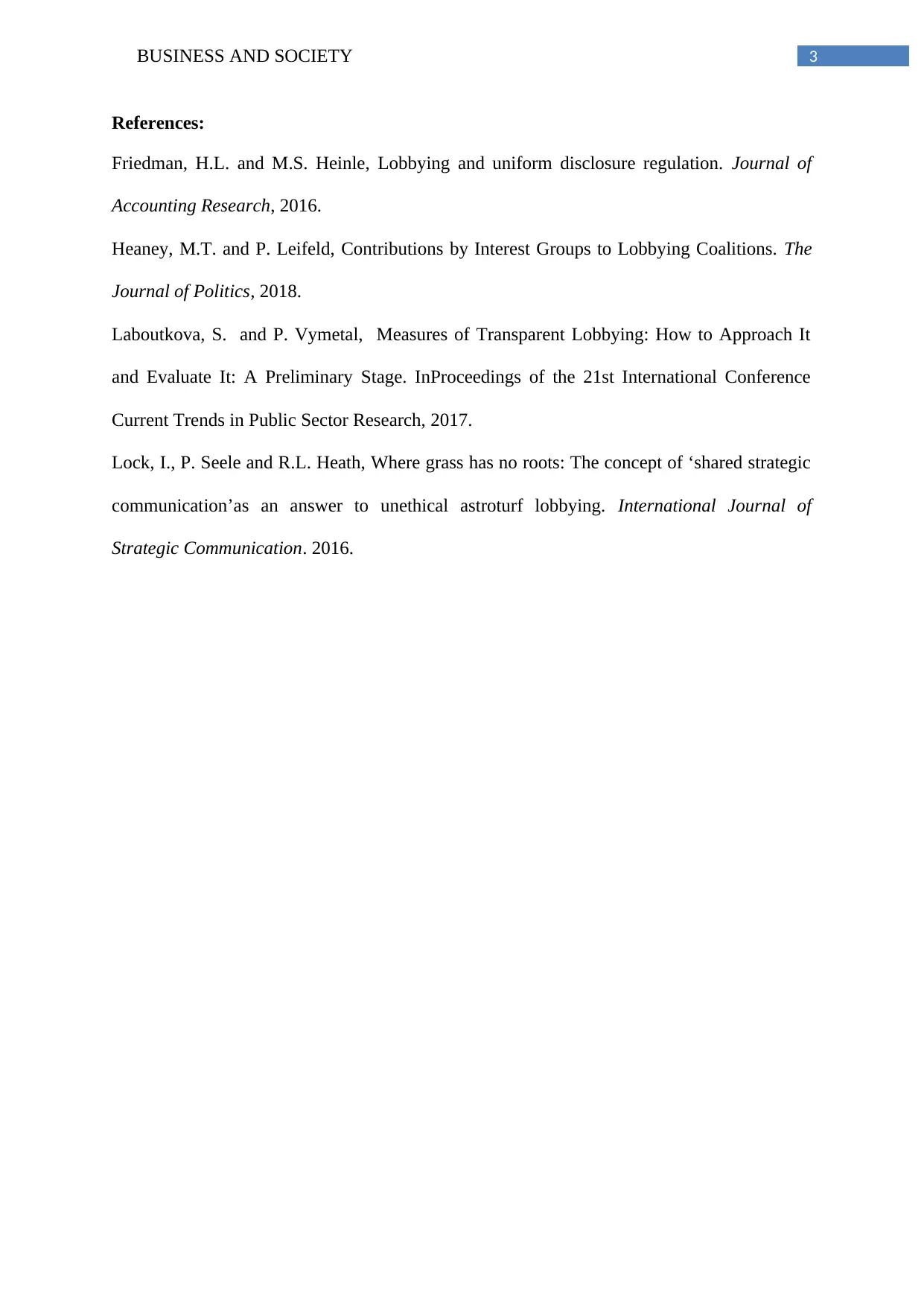Business and Society: Understanding and Applying Effective Lobbying
VerifiedAdded on 2023/06/09
|4
|717
|180
Essay
AI Summary
This essay provides an overview of the principles of effective lobbying within the context of business and society. It emphasizes that effective lobbying involves understanding the issues, clearly articulating their impact on stakeholders and legislators, anticipating questions, and maintaining flexibility. The principles also stress the importance of honesty, simplicity, and realistic expectations in the legislative process. Building coalitions, working at the local level, and knowing both friends and opponents are crucial for successful lobbying efforts. The essay concludes that lobbying is an integral part of the democratic process, requiring integrity and trust to maintain its effectiveness in shaping democratic decision-making. Desklib provides access to similar essays and study resources for students.
1 out of 4









![[object Object]](/_next/static/media/star-bottom.7253800d.svg)